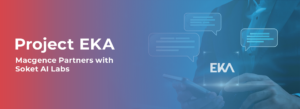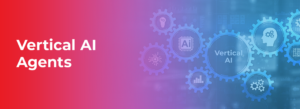The Best Way to Train Artificial Intelligence When It Comes To Facial Recognition
These days, there’s hardly anything in the field of artificial intelligence (AI) that’s as interesting as facial recognition technology. From security and surveillance all the way to personalized user experiences in retail and mobile apps — this system has found its place practically everywhere. But what makes or breaks any given facial recognition system is how good its AI training data is. In this guide, we’re going to talk about what is meant by AI training data for facial recognition; why it’s important; challenges involved with collecting & annotating such data; as well as some possible solutions offered by Macgence.
What Does AI Training Data For Facial Recognition Mean?
In order to teach machine learning models how to identify and differentiate between human faces, a set of labeled images or videos should be used — these are referred to as AI training data for facial recognition. A more diverse dataset improves performance; also, you must properly label it so that every sample has its own unique identity within it. This would help an Artificial Intelligence (AI) system perform optimally under different conditions or with varied populations.
Why Is High-Quality Training Data Important?

Accuracy And Reliability: High-quality training data directly affects accuracy & reliability of any facial recognition system. Accurate annotations together with a wide range of examples serve as effective measures against false positives/negatives.
Bias Reduction: A well trained on diversified demographic groups’ database will ensure equal performance across all demographics by reducing biases which could lead into discrimination practices through face ID verification or other similar processes during identification process steps.
Scalability: An algorithm learns best when given more information hence robustness comes from having large amounts of diverse inputs representing many aspects related to those inputs so created models can easily scale up if required later on when new areas need coverage too …
How Macgence Thrives to Provide AI Training Data for Facial Recognition
Macgence knows the importance of good training data in building effective facial recognition systems. Here is what sets us apart:
Thorough Data Collection
We are experts at collecting different types of representative face data, thus ensuring that our datasets capture different demographics, expressions, and environmental conditions. Our stringent protocols for collecting information take into account privacy and ethics requirements.
Accurate Annotation
With the use of modern tools and techniques, our team annotates training data used in facial recognition with a high level of precision. This involves labeling emotions, facial landmarks among other attributes which is crucial in ensuring dependable model performance.
Tailor-Made Solutions
Each project is unique and so we offer personalized services that suit your specific needs when it comes to data. If you need annotations on certain features of the face or want information about a particular demographic group, Macgence will provide it for you.
In Conclusion
Quality training sets algorithms for better accuracy rates without biasness hence reliable results oriented towards fairness in identification processes. The success of any facial recognition program depends on the quality and diversity of training data sets used during development. Our commitment at Macgence is to provide high-level training sets that meet all aspects of excellence, inclusivity, and ethical standards. Therefore, if you want your system to work effectively across different races or ages then partner with us because we have what it takes!
FAQs
Ans: – Ethical considerations include obtaining informed consent from individuals whose data researchers use, protecting personal privacy rights, preventing bias or discrimination against any particular group, and ensuring compliance with relevant laws such as the General Data Protection Regulation (GDPR) or California Consumer Privacy Act (CCPA).
Ans: – Diverse samples help ensure that these systems can accurately recognize faces across different races, genders etc., thereby reducing biases while enhancing their overall performance among all users.
Ans: – To safeguard privacy: one must seek people’s permission before collecting their personal details; anonymize where necessary; store securely & process safely using recommended best practices like encryption; abide by applicable legal frameworks relating to data protection etc.
You Might Like
February 28, 2025
Project EKA – Driving the Future of AI in India
Spread the loveArtificial Intelligence (AI) has long been heralded as the driving force behind global technological revolutions. But what happens when AI isn’t tailored to the needs of its diverse users? Project EKA is answering that question in India. This groundbreaking initiative aims to redefine the AI landscape, bridging the gap between India’s cultural, linguistic, […]
March 7, 2025
What is Data Annotation? And How Can It Help Build Better AI?
Spread the loveIntroduction In the world of digitalised artificial intelligence (AI) and machine learning (ML), data is the core base of innovation. However, raw data alone is not sufficient to train accurate AI models. That’s why data annotation comes forward to resolve this. It is a fundamental process that helps machines to understand and interpret […]
March 6, 2025
Vertical AI Agents: Redefining Business Efficiency and Innovation
Spread the loveThe pace of industry activity is being altered by the evolution of AI technology. Its most recent advancement represents yet another level in Vertical AI systems. This is a cross discipline form of AI strategy that aims to improve automation in decision making and task optimization by heuristically solving all encompassing problems within […]
March 5, 2025
Use of Insurance Data Annotation Services for AI/ML Models
Spread the loveThe integration of artificial intelligence (AI) and machine learning (ML) is rapidly transforming the insurance industry. In order to build reliable AI/ML models, however, thorough data annotation is necessary. Insurance data annotation is a key step in enabling automated systems to read complex insurance documents, identify fraud, and optimize claim processing. If you […]


 Previous Blog
Previous Blog







